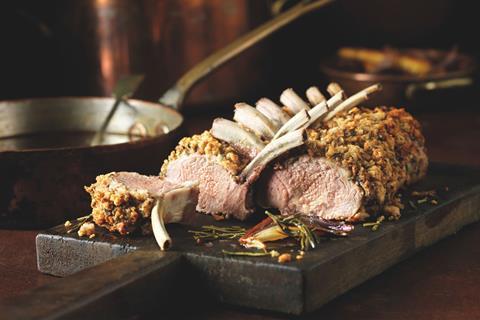The National Sheep Association (NSA) has expressed concern over the increasing volumes of southern hemisphere lamb imports.

NSA policy manager Michael Priestley found that supermarket shelves are expected to remain the talking point, as country of origin must be stated on packaging, but said that provenance issues “are not so obvious in the foodservice sector”.
AHDB analysis highlighted that Australian imports have increased the most significantly since the 12% tariff was removed on an increasing quantity of product. Imports grew 37% in 2024 to 76,500 tonnes, the equivalent of 28.7% of the total sheepmeat produced in the UK (266,500 tonnes).
Priestley stressed that the UK is a key exporter of lamb itself, and 2024 figures showed the UK exported 32% of its production and imported 28.7% of its production. NSA maintained that the only reason the UK can ship lamb to Europe is because its standards match those of the EU.
Priestley commented: “NSA’s recent message to press has been that NSA members are concerned the animal welfare and environmental standards of New Zealand and Australian lamb fall short of standards set by UK law and assurance schemes that govern UK sheep farms.
“UK farmers strive to produce to the highest standards in the world, which costs farmers time and money. NSA therefore calls on supermarkets to consider this when they import southern hemisphere lamb, especially at a time when Government support is so uncertain and the old Basic Payment Scheme (BPS) subsidy for UK farms is dwindling away.
“Importing lamb from New Zealand and Australia may be short-changing the UK consumer, even though it is cheaper to buy.”
More southern hemisphere lamb could be diverted to the UK
A further consideration is the EU-New Zealand free trade agreement, said NSA, as limitations on product will also be reduced on New Zealand product coming into the EU, and the EU is the UK’s main customer. It said that at this early stage, the high-value cuts (i.e. legs) that New Zealand exports are not expected to displace UK shipments of whole carcasses.
However, NSA commented that life outside the EU “is higher risk and will expose UK sheep farmers to the whims of global geopolitics, climate change, and Chinese buying behaviours”.
Priestley continued: “Trump’s tariffs mean the US is buying less New Zealand and Australia lamb. China is trying to produce more lamb of its own, and if anything happens to China’s buying behaviour, there is a risk of more southern hemisphere lamb being diverted to the UK.
“Furthermore, there are factors that could limit lamb being produced in New Zealand and Australia, such as climate change leading to wildfires and drought and Government policies reducing grazing area through afforestation.
“These external factors will have a growing impact as tariff-free quota amounts become liberalised over the remainder of the 15-year liberalisation period.”















